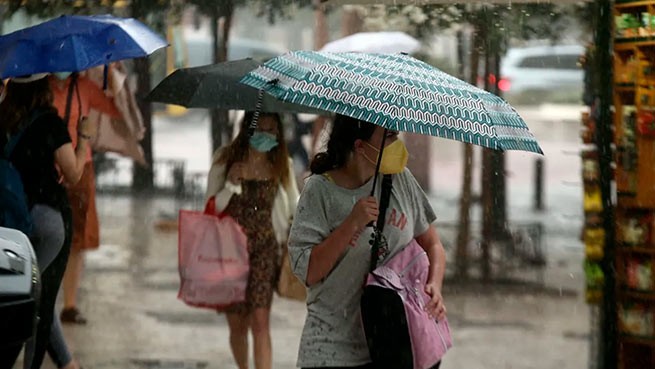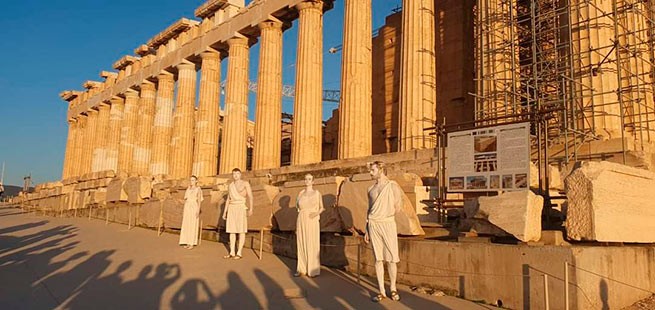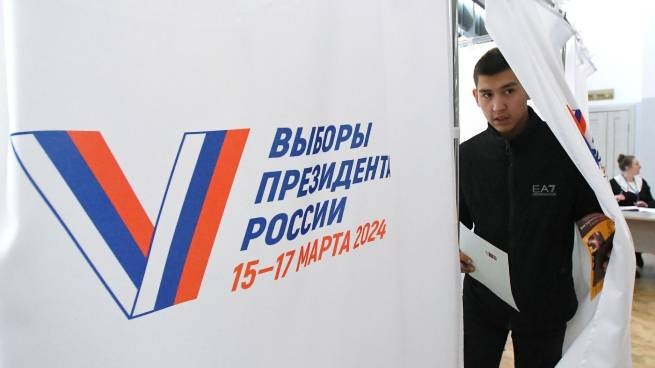In the Russian Federation and abroad, on the evening of March 17, the presidential elections of the Russian Federation ended, which the opposition decided not to boycott. Russian President Vladimir Putin wins the elections with a record result: based on the results of processing 70% of the protocols, he gains more than 87%.
The electoral process for the re-election of Vladimir Putin for a fifth term lasted three days. For the first time, remote electronic voting (DEG) was used in the elections, which made it possible to increase turnout: if in 2018 the CEC reported 67.54% of voters who came to the elections, then in 2024 there were 74.22%.
During voting in several Russian cities, ballot boxes were set on fire and filled with ink, iodine and brilliant green. According to the Russian Central Election Commission, 214 ballots were irrevocably spoiled. There were also casualties – on the third day of voting, a 64-year-old woman brought a firecracker into a polling station in Perm, which exploded in her hand. 50 people were evacuated from the building. reports euronews.
Many of those who obstructed the elections filmed their actions on their phones and did not try to hide. They later explained to the police that they acted on the instructions of their interlocutors on the phone. The Russian Ministry of Internal Affairs opened 61 criminal cases, 23 of which were due to deliberately false reports of terrorist attacks. Another 33 criminal cases were opened in connection with the bringing of dyes and flammable liquids into voting stations.
The head of the Russian Central Election Commission, Ella Pamfilova, called the detainees “scum”; criminal cases were opened against most of them under Art. 141 of the Criminal Code of the Russian Federation – “obstruction of the exercise of electoral rights or the work of election commissions.” Those involved in these cases face up to five years in prison. The State Duma raised the issue of toughening punishment – up to eight years in prison, writes D.W.
More than 85 protesters were detained in 21 Russian cities over three days, the human rights project OVD-Info reported. According to the Russian Ministry of Internal Affairs, a total of 155 protocols on administrative violations were drawn up. For example, at a polling station in Moscow, a married couple was detained because of a scarf with a quote from George Orwell, and in the Saratov region, an observer from the Communist Party of the Russian Federation was detained for the phrase “Putin throws people under tanks for 250 thousand a month.” People were detained for writing on ballots and even simply for showing up at noon, as in Kazan.
Russian authorities reacted to the “Noon against Putin” protest. The official representative of the Russian Foreign Ministry Maria Zakharova in her Telegram channel stated that queues at Russian diplomatic missions abroad lined up all three days – from March 15 to 17: “If the people who are standing in line abroad to vote in the presidential elections in Russia accepted participation in the “noon” action, so they would all disperse after noon.” However, she did not clarify that most Russian embassies and consulates were open for voting only one day, and in European countries the voter registration process was slow due to reduced Russian diplomatic missions.
Putin himself also spoke about the action. He spoke on the stage of the Gostiny Dvor in Moscow in front of volunteers and members of his headquarters, thanking them for their work and praising his opponents for their calls to come to the polls: “If the opposition thought it was important to come and vote, then good,” adding that he regretted ballots that were spoiled by Russian citizens. The number of spoiled ballots should become known after the final results are summed up – they are counted last.
https://t.me/vestiru24/110528
According to the Central Election Commission, based on the results of processing 70% of the protocols, he gains 87.17% of the votes. In second place is Nikolai Kharitonov from the Communist Party of the Russian Federation (4.19%), in third is Vladislav Davankov from New People (4.08%), in fourth is Leonid Slutsky from the Liberal Democratic Party (3.15%). Turnout, taking into account remote voting, exceeded 74%.
The “Noon Against Putin” rally, which was proposed by former deputy of the St. Petersburg Legislative Assembly Maxim Reznik and supported by Alexei Navalny, took place in a number of cities and countries. The idea was to go to the polls on March 17 at 12:00 local time to show how many voters oppose the current president. What those who came did next: put a tick on one of the other three candidates, invalidated the ballot, or did not vote and limited themselves to standing in line – according to the authors, this is of secondary importance, explains “New Newspaper”.
Despite threats from the prosecutor’s office, offers to vote via the Internet and fakes about the cancellation of the event, thousands of Russians came to the polling stations at 12 o’clock on Sunday. Earlier, the opposition called on those who disagree with the policies of the current President of the Russian Federation to take part in the action. In Moscow, queues of people wishing to vote at noon were observed at several polling stations. At MIPT, where Boris Nadezhdin taught and voted, students began chanting his name. He was not allowed to participate in the elections after the Central Election Commission invalidated part of the signatures collected in his support in February.
Abroad, at Russian diplomatic missions by midday, hours-long queues of Russians wishing to vote had formed. In some cities they had to wait in line for 6-7 hours. One of the largest events abroad took place in Berlin. According to some estimates, about two thousand people took part in it. Alexei Navalny’s widow Yulia came to the Russian Embassy in Germany at noon to vote, like dozens of other Russians. Mikhail Khodorkovsky was spotted at the rally.
Previously, our publication told how the presidential elections in the Russian Federation are taking place. in Greece. Russian Ambassador Andrei Maslov, speaking with Russian journalists, noted the good preparation for the presidential elections in the Russian Federation at polling stations.
Nevertheless, independent observers noted numerous violations in the organization of voting in the Russian Federation. In addition to stuffing and “carousels”, it was also reported that in some areas the voting booths had no curtains: police officers monitored what voters marked on the ballot and detained them if they did not like it.
Almost 250 thousand Russians voted at foreign polling stations in the presidential elections, taking into account early and three-day voting. Such a figure named Chairman of the Russian Foreign Ministry Commission on Elections, Secretary of State and Deputy Minister of Foreign Affairs Evgeny Ivanov. “As of 18:00, taking into account early and three-day voting – these are Cyprus, Thailand, South Ossetia – the total number of voters has already amounted to 249,806 people,” he noted.







More Stories
Paris: wild clashes between police and "black" block
Modern Germans are far from the most hardworking in Europe
Georgia: Opposition leaders were brutally beaten by security forces (video)